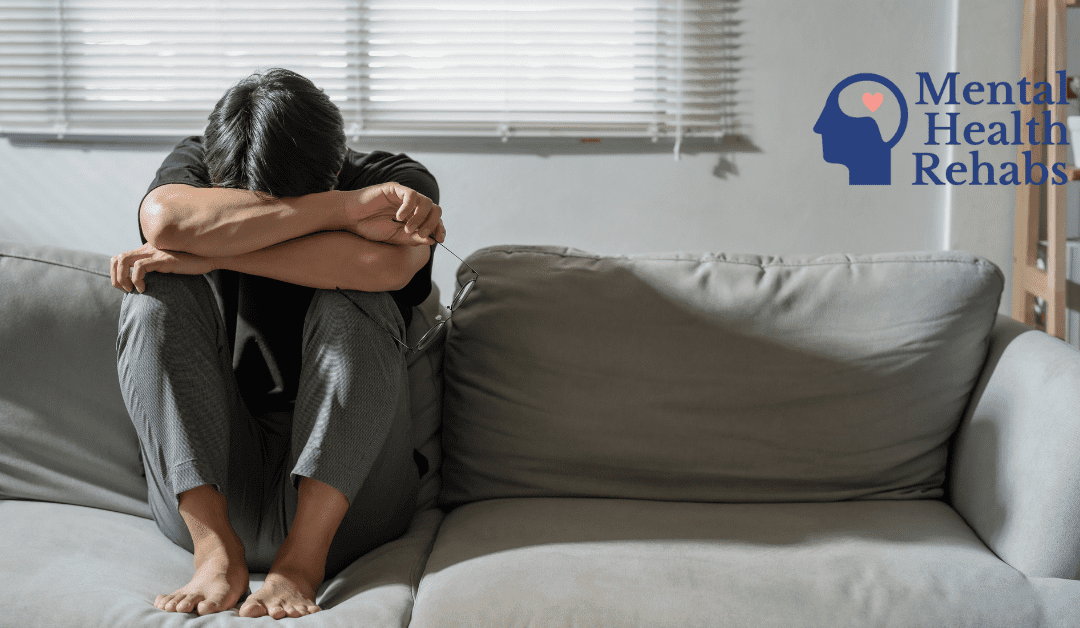It’s easy to sideline mental health amidst daily commitments and routines in our fast-paced world. Often, we only recognize its significance when facing burnout or health issues. The gravity of this oversight is evident in the fact that, as of 2021, 9.2 million U.S. adults suffered from co-occurring disorders, highlighting the widespread ignorance of underlying issues such as chronic stress and addiction.
Here are six crucial elements to consider for a comprehensive mental health assessment, ensuring a balance between your physical and psychological well-being.
1. Persistent Stress and Anxiety Symptoms
Chronic stress and anxiety can manifest in various ways, affecting both body and mind. Physical symptoms might include muscle tension, increased heart rate, and rapid breathing, while mental effects can range from memory issues to mood disturbances.
Chronic stress, if not properly managed, can escalate into anxiety disorders, marked by overwhelming feelings, carelessness towards responsibilities, and a propensity for addictive behaviors.
The American Psychological Association reports that over 75% of Americans experience physical symptoms caused by stress. Learning to identify and manage these symptoms through strategies like mindfulness, exercise, and professional support is crucial for mental health.
Learning to identify and manage these symptoms through strategies like mindfulness, exercise, and professional support is crucial for mental health.
2. Inexplicable Sadness and Depression Symptoms
A survey conducted in 2022 revealed a significant gap between experiencing symptoms of depression and receiving a diagnosis. Common signs such as persistent feelings of hopelessness, loss of interest in activities, and disturbed sleep patterns are often overlooked.
Understanding these symptoms and distinguishing them from ordinary sadness is vital.
According to the World Health Organization, more than 264 million people globally suffer from depression. Depression, if left untreated, can have severe consequences, including an increased risk of suicide. Encouraging open conversations about mental health and seeking professional help when needed are key steps in addressing this issue.
3. Physical Symptoms Linked to Mental Health
Poor mental health can manifest in a variety of physical symptoms, reflecting the strong connection between the mind and body. Some common physical symptoms linked to poor mental health include:
- Gastrointestinal Issues: Stress, anxiety, and depression can lead to a range of digestive problems, including stomach aches, nausea, diarrhea, constipation, and irritable bowel syndrome (IBS).
- Headaches and Migraines: Chronic stress, anxiety, and depression can trigger tension headaches or migraines. These may be more frequent or severe in individuals struggling with mental health issues.
- Chronic Muscle Tension and Aches: The body’s physical response to stress often involves muscle tension, leading to aches and pains in various body parts, such as the neck, shoulders, and back.
- Cardiovascular Symptoms: Stress and anxiety can increase heart rate and blood pressure, and chronic stress can contribute to long-term issues like hypertension and an increased risk of heart disease.
- Weakened Immune System: Prolonged stress or depression can weaken the immune system, making the body more susceptible to infections and illnesses and slowing down recovery from sickness.
- Skin Conditions: Stress can exacerbate eczema, psoriasis, and acne. The body’s response to stress may include releasing chemicals that affect skin health.
- Decreased Libido: Mental health issues, especially depression and anxiety, can lead to a reduced interest in sexual activity. Certain medications for mental health conditions can also affect libido.
It’s important to note that these symptoms can also indicate other physical health conditions. Therefore, if you’re experiencing any of these symptoms, it’s advisable to consult a healthcare professional for a comprehensive evaluation. This can help in determining whether these symptoms are related to mental health, physical health issues, or a combination of both.
4. Mood Swings and Emotional Instability
While it’s normal to experience mood changes, frequent and intense swings can be indicative of underlying mental health issues. Hormonal imbalances, medication side effects, and psychiatric conditions like bipolar disorder and borderline personality disorder can all contribute to emotional instability. Recognizing these patterns and seeking a professional evaluation can lead to effective management and treatment.
5. Changes in Sleep Patterns and Appetite
The connection between sleep, appetite, and mental health is complex. Disorders like insomnia and hypersomnia are closely linked to mental health conditions such as depression and anxiety.
Similarly, significant changes in appetite can be both a symptom and a contributing factor to mental health issues. Understanding and addressing these changes through lifestyle adjustments, therapy, and medication can improve mental well-being.
6. Withdrawal from Social Activities
Social withdrawal can be a sign of various mental health conditions. Avoiding social interactions can lead to a range of negative outcomes, including unhealthy lifestyle habits, feelings of sadness and low self-esteem, and an increased risk of substance abuse.
Recognizing the reasons behind social withdrawal, such as anxiety or fear of rejection, and addressing them through therapy or support groups can be beneficial.
Try a Monthly Mental Health Self-Checklist
Incorporating a monthly self-check into your routine can be a powerful tool in maintaining mental health. This checklist includes emotional awareness, stress levels, sleep quality, physical symptoms, and self-care practices. Consider these aspects:
- Emotional Awareness: Regularly check in with your emotions. Identify any significant changes and consider what might be causing these feelings.
- Stress Levels: Assess your stress levels and identify specific stressors. Explore stress management techniques such as meditation, yoga, or professional counseling.
- Sleep Quality: Monitor your sleep patterns and address any falling or staying asleep issues.
- Physical Symptoms: Be aware of any physical signs that might be linked to your mental state. These can include headaches, digestive issues, or changes in appetite.
- Self-Care Practices: Reflect on your social interactions, lifestyle choices, and routines contributing to your well-being. Assess whether these practices are supporting your mental health.
This checklist is not a substitute for professional evaluation. If you notice persistent symptoms that interfere with your daily life, seeking guidance from a healthcare professional is important. Remember, reaching out for help is a sign of strength and the first step toward a happier, healthier life.

